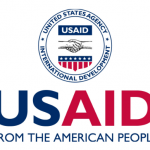
A recent assessment carried out by USAID on democracy, human rights and governance in Guyana has recommended significant reforms for the Guyana Police Police, while calling for a more regulated private security sector.
Although Guyana has seen an increase in criminal prosecutions and improved successes in crime fighting, the report said there is still need for the Police Force to strengthen its investigations and prosecutions.
It said an estimated 90 % of prosecutions are unsuccessful and the Police Force is the least-trusted institution in the country.
The level of public trust in the police stands at 24.3 %, which is down from 41.5 % in 2012.
The report said one senior security functionary attributed the low level of public trust to the Police Force’s culture of covering up issues and a reluctance to discipline higher ranks when wrongdoing is uncovered.
It was also felt that the Police Complaints Authority should be constituted differently, with persons not tied to the police force who could operate more independently.
The report also focused on the private security sector and noted that the sector is poorly regulated and employs significant numbers of women and older persons.
The security guards are poorly paid and are often the victims of sexual harassment and other crimes.
According to the report, the Court system is one of the few means to get redress in the country, however, the system is slow and cumbersome.
The USAID assessment pointed out that access to justice in the interior region is difficult, where the Magistrates’ Court sittings are held in hinterland regional capitals only once every three months, as there is currently only one magistrate.
It found that most of the national human rights institutions are not effective or functioning because of stalled appointments, among other issues.

















You must be logged in to post a comment Login